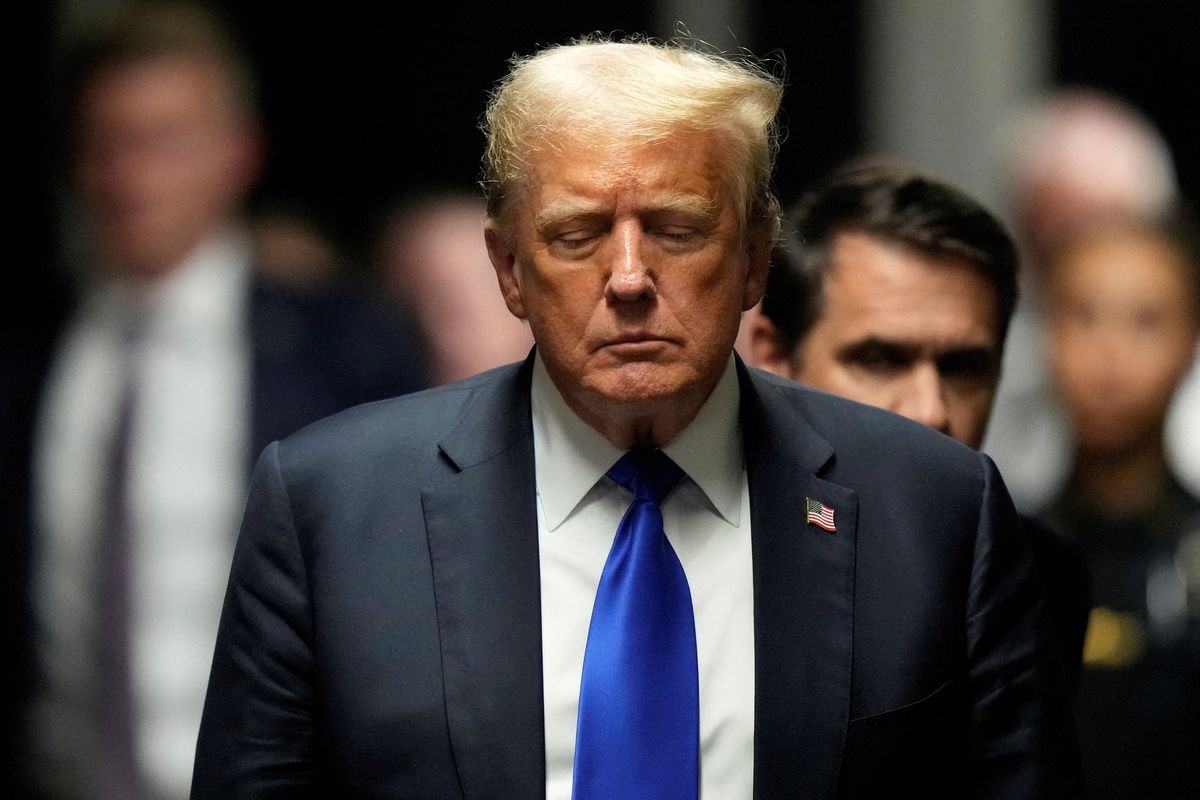
President Donald Trump is trying to make good on his promise to deport students who protested Israel by making an example of one of the ringleaders of last year's campus protests at Columbia University, but there's a potential wrinkle in his plans — and it was laid down by his own sister when she served as a federal judge, the New York Times reported.
Mahmoud Khalil, a former graduate student at Columbia and a permanent resident, was one of the central figures in a protest that called on the university to divest from companies that were directly or indirectly financing Israel's invasion of Gaza following the terrorist group Hamas' brutal terrorist attacks on October 7, 2023.
He maintains he did nothing illegal and wasn't involved in the forceful occupation of a university building.
The administration, which summarily grabbed him from his apartment and shipped him to an infamously abusive detention network in Louisiana, claimed it had evidence that he was promoting propaganda on behalf of Hamas, which they say is grounds for the Secretary of State to remove him from the country under a law passed in 1952.
But the law in question was once deemed unconstitutional by Trump's own sister.
ALSO READ: The new guy in charge of USAID doesn't believe in foreign aid
"Mr. Trump does not have much use for a lot of judges," noted reporter Adam Liptak. For example, earlier this month "he called for the impeachment of 'many of the Crooked Judges I am forced to appear before.'" However, he was always proud of his sister, U.S. Circuit Judge Maryanne Trump Barry, stating after her death in 2023, "I will never forget the many times people would come up to me and say, ‘Your sister was the smartest person on the Court.’ I was always honored by that, but understood exactly what they meant — They were right! She was a great Judge, and a great sister.”
It turns out that in 1996, Barry, then a Reagan-appointed federal trial court judge in New Jersey, once ruled on this exact law in a case involving the Clinton administration's bid to remove former Mexican official Mario Ruiz Massieu. She found that law to be unconstitutional.
The law, she wrote, “confers upon a single individual, the secretary of state, the unfettered and unreviewable discretion to deport any alien lawfully within the United States” if “that person’s mere presence here would impact in some unexplained way on the foreign policy interests of the United States.” This is unconstitutional, she argued, because it was too vague for people to understand what conduct is prohibited, and because it improperly delegated authority solely to the Secretary of State.
Barry's opinion in the Massieu case was reversed by the Third Circuit, with the author being the future Supreme Court Justice Samuel Alito, who did not consider the merits but ruled on procedural grounds. Later, in 1999, President Bill Clinton would appoint Barry to the Third Circuit herself, where she would sit until 2019 when an ethics investigation into her tax practices pressured her into retiring.
In her later years, Barry would publicly disagree with her brother's family separation policies, saying Trump "hasn’t read my immigration opinions.”




